The Indonesian island sanctuary of Salat has three new chestnut-haired inhabitants.
In May 2023, three orangutans – Lanting, Junior and Praca – were released into the forests of Salat as part of their adaptation process before their reintroduction back to their natural habitat.
This initiative was made possible through a close partnership between four RSPO Members, including independent smallholder group Asosiasi Petani Kelapa Sawit Mandiri (APKSM), Fortasbi, PT Sawit Sumbermas Sarana (PT. SSMS) and the Borneo Orangutan Survival Foundation (BOSF).
“This pre-release is the process of teaching orangutans to return to their natural habitat, said Eko Prasetyo, Programme Development and Planning Manager, BOSF. “It usually takes a long time, around 7-10 years, for an orangutan to return to the wild, especially those that have been interacting with humans for a long time.”
Head of Sustainability of PT SSMS Henky Satrio said that the collaboration between SSMS, BOS Foundation, FORTASBI and APSKM is the first step in involving independent smallholders. The goal is to educate farmers on the importance of orangutan protection as part of forest protection. “The existence of Salat Island as a pre-release island is a new breakthrough and a good solution in the effort to save orangutans that are almost extinct in Central Kalimantan. And the involvement of FORTASBI and APSKM can be an inspiration for palm oil industry players and other parties related to oil palm plantations so that more parties can work together,” he explained.
Funds from RSPO Credits were used by the APKSM smallholders to provide vital support for the orangutans’ survival, including the primates’ food provisions for one year. An individual orangutan needs 5kg of food per day in the form of fruits and vegetables. Currently, their food is being supplied by the surrounding community and in collaboration with BUMDES Pilang Village.
“We want the surrounding community to also benefit economically from our orangutan protection innovation,” said Andri Najiburrahman, Social, Environment and Biodiversity Manager, PT. SSMS.
Primate paradise
Over the last decade, Salat Island has become an idyllic orangutan haven, with its abundant fruit trees and flowing rivers serving as natural barriers that protect the primates from poachers. PT. SSMS purchased a part of Salat Island in 2016 to dedicate the area to orangutan rehabilitation and pre-release as part of their RSPO remediation and compensation project, and shoulders part of BOSF’s costs for the island’s maintenance and monitoring activities.
To date, Salat Island has already welcomed 100 rescued orangutans for adaptation and rehabilitation, with 50 having successfully returned to the wild since 2016.
This orangutan release project showcases how oil palm smallholders can champion sustainability by playing an active role in the conservation and protection of endangered species. APKSM, as a member of RSPO and Fortasbi, welcomed the opportunity to be one of the first independent smallholders to contribute to orangutan protection by contributing their incentive benefits from RSPO Credit funds.
“This was an amazing journey for me, even though we had to go through rivers and forests, it really opened our eyes to how important orangutans are in maintaining the forest’s balance and conservation,” said Widodo, Group Manager of the APKSM smallholder group. “We thought only humans could protect the forest, but it turns out that orangutans are an important part of forest preservation. On behalf of APKSM, a RSPO Certified independent smallholder association, I thank BOSF and PT. SSMS for involving us in the process of protecting orangutans, which we will continue in the following years.”
“APKSM’s involvement in orangutan protection can be an example for all parties in the palm oil chain, especially independent smallholders in Indonesia,” said Rukaiyah Rafik, Head of FORTASBI Secretariat, who was present at the orangutan pre-release event. “We are showing the world that independent smallholders can play an important role in recovery and protection. They just need to be involved and educated on the importance of protecting and restoring nature.”
This initiative also demonstrates how buyers can be involved in conservation projects, through their purchase of RSPO Credits.
“With the RSPO Credit funds from palm oil buyers, APKSM was able to contribute to the protection of the Bornean orangutan,” added Rukaiyah.
Harnessing the power of smallholders for animal protection
Following this initial collaborative project for orangutan conservation, Fortasbi, APKSM and PT. SSMS are now seeking other similar opportunities to protect other endangered species in Indonesia, such as elephants and tigers.
Fortasbi is actively exploring opportunities to connect smallholders with other NGOs or companies involved in animal conservation, believing these small scale farmers, which number in the millions across Indonesia, can be a powerful force for conservation once they receive proper education about balancing production with conservation. To this end, Fortasbi is currently inviting more Indonesian smallholders to be involved in the learning process so they can deepen their engagement in animal protection initiatives.
Keep reading

Open Letter to COP30 President: Integrating Forests and Biodiversity: A Policy Central to Paris Agreement Success
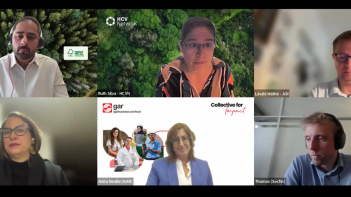
Bridging the Auditing Divide: Key Takeaways from the RSPO Assurance Forum 11
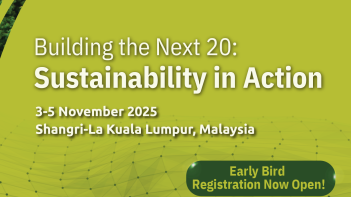
Good News: RT2025 Early Bird Registration Extended!
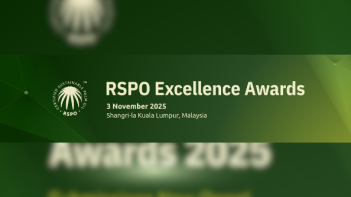
Extension of RSPO Excellence Awards 2025 Submission Deadline!
Call for Expression of Interest: Ghana National Interpretation Task Force for 2024 RSPO Principles and Criteria (RSPO P&C)
Call for Expression of Interest: Côte D’Ivoire National Interpretation Task Force for 2024 RSPO Principles and Criteria (RSPO P&C) and Independent Smallholder (ISH) Standard
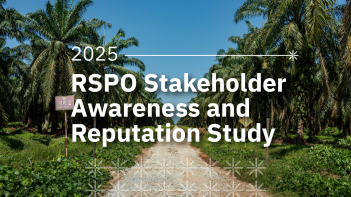
RSPO Gains Global Recognition in 2025 Stakeholder Study
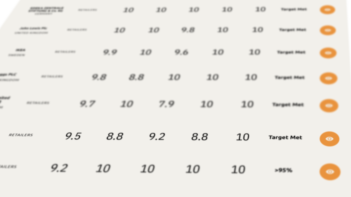
Top 9 Retailers In Europe Committing To Sustainable Palm Oil





